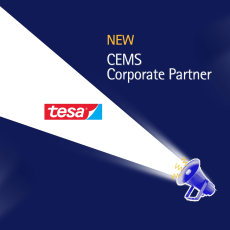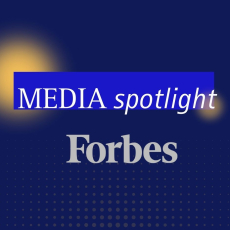João Matias has been in consulting for more than a decade; a long tenure by many measures, he says. But while some may work as consultants for two or three years and move on or elsewhere, there is something “thrilling” about his work that has more than sustained his curiosity over the years. For a start, there are the challenges: a diversity of business problems and issues to address. Then there’s the access: working with decision-makers and leaders at the apex of different organisations and sectors. And there are the welcome opportunities to travel—to globe trot, he says, referring to his own professional trajectory that has seen him work with businesses, clients, colleagues and mentors across three continents: from his native Portugal to Angola to Miami and San Francisco. And the thread that has connected this trajectory over the last 10 years? Boston Consulting Group (BCG), a CEMS Corporate Partner and a simply “fantastic” culture to work within, he says.
“BCG has followed me all the way, from 2012 when I interned for them as an undergraduate, on from 2014 when I joined the organisation fresh out of CEMS. And it’s been an adventure right from the go. I started out at the age of 23 working cheek by jowl with CMOs and CSOs in major-league companies, so you handed amazing challenges and responsibility straight out of the door,” says João. “Though you are never alone. Your Principal always has your back and in a sense, you have the whole company behind you in every room. BCG does this so well.”
Today he is a Principal himself, leading teams in large-scale transformations and strategic assessments in the financial, consumer and technology, media and telecoms spaces. He has led teams at BCG since 2021, and is currently based out of BCG’s offices in Miami.
“Being a Principal with BCG is about leading your teams and leading relations with our clients, who are typically CEOs or top organisational strategists. You sit at the centre of a triangle between your direct team, your client and the Managing Directors or Partners within BCG itself, so you keep everything on track and information flowing multi-laterally. It’s a demanding and dynamic role.”
“It’s 10 years since I’ve been with the company and I could have made Partner by now. But honestly, I take great pride in being slower,” he says, laughing.
“I am proud of my work and I always perform at my best, but I’ve always prioritised making space in my life for different areas that have absorbed me, be that parenthood and spending time with my children, taking leaves of absence to travel and making the space to do my MBA. What I have found is that this is a very human organisation; one that understands and makes room for its people to strike the balances that work for them. And one that understands that doing things your own way and at your own pace makes you a better leader.”
So deep is that understanding that BCG sponsored João’s MBA (which he did alongside his wife, also a BCG employee at the time and a fellow CEMSie.) The company has also always been supportive of João in moving to different locations to accommodate evolving family exigencies and needs. When his wife was hired by Google in San Francisco, BCG ensured that he could work from its offices in situ. The company also facilitated his move to Miami.
“At BCG there really is a feeling that you are a human being first, and a co-worker second. And it’s not just about giving you the flexibility to move or take time off. It sounds counter-intuitive, but at BCG you are replaceable in the sense that you can step in and out of different roles or contexts, and other people will step in and stand in for you to lead your team whenever necessary.”
In the place of rivalry or competitiveness between colleagues, there is an entrenched sense of collaboration and an elasticity within the organisation that accommodates and supports individuals as they build their career and expertise along their own pathways, and at their own tempo.
“It’s the human touch and it’s one of the many reasons I have stayed here all these years,” says João. “It’s the quality of the people and their humane ability to connect at the personal as well as the professional level. The flexibility you have there is all geared to supporting your success and your wellbeing.”
Sharing expertise and empowering the team
João has been the beneficiary of enormous flexibility and support at BCG and plans to leverage the same flexibility and support to pivot into a new role in 2025: coaching other managers and teams withing the organisation during a three-month secondment.
Coaching, he says, is a core function of collaboration and knowledge-sharing across the company. Principals are routinely offered the possibility of stepping away from their projects to support colleagues working with different clients, and help bridge any knowledge or capability gaps that might arise. It is a chance to share expertise and insights through collaboration, and one that he welcomes enthusiastically
“I love that I get to channel my own experience and share with other managers, helping them to do a ton of things from direct client work to improving sustainability, working hours and collaboration. And for me it’s an opportunity to focus on an internal case—to transition out of the very high-paced transformation work for a short period and bring different skills to bear on company needs. The trade-off here is about greater exposure and diversity which in turn makes you a better leader, I think.”
Leadership is an aptitude, he says, but it’s also a mindset. Being able to “rally the troops” in demanding or critical circumstances, and to bring the “positivity” to galvanise others hinges first on being approachable and transparent. Honesty and authenticity here are key. So too is empowering people to be their best.
“Leading is about challenging the status quo and to do that you need to have a point of view,” says João. “But your point of view as a leader has to be informed by your team. All too often, I have seen aspiring leaders very eager to show off their abilities – taking up too much air time and protagonism, where really it’s the whole team that needs to be in the spotlight. As a leader, I think that you have to understand that your team’s success is your success.”
Prioritise the human at the centre
Soft skills are just as critical as the hard skills in consultancy and in leadership, if not more so, João says. And this is a lesson that he learned as a CEMSie in Portugal and Singapore.
“I came into CEMS as an finance and economics graduate from Portugal, where hard skills are king. And suddenly there’s a class called ‘Positive Organisations,’” he says, laughing. “It really opened my eyes to the all-important human dimensions of culture and change management. I understood for the first time that organisational turbulence wasn’t an equation to be solved and that soft skills beat hard skills – which is still 100% the case in my work today.”
Prioritising the human at the centre of everything is a value that sits at the core of João’s approach to leadership, his organisation, his practice as a successful senior consultant, and the advice that he would share with any young person starting out in their career and life.
“The first piece of advice I’d share would be to prioritise what you need and speak up for yourself. In life, people generally won’t think and act for you, and typically the “no” is guaranteed, so go ahead and ask for yourself because you have nothing to lose.”
And when challenges feel insurmountable or too big to tackle, he recommends breaking them up into little pieces that are more manageable; that and “socialising the problem” by asking for help.
“Tackle things step by step and don’t be afraid to ask for support whenever you need it because it’s all part of learning. And don’t take yourself too seriously,” says João. “If I’d taken myself uber-seriously, I might not have taken time or been able to prioritise the luxuries of travel or study or building a family. I have accrued important human experience and at the end of the day, these things are also invaluable to who you are as a leader.”




